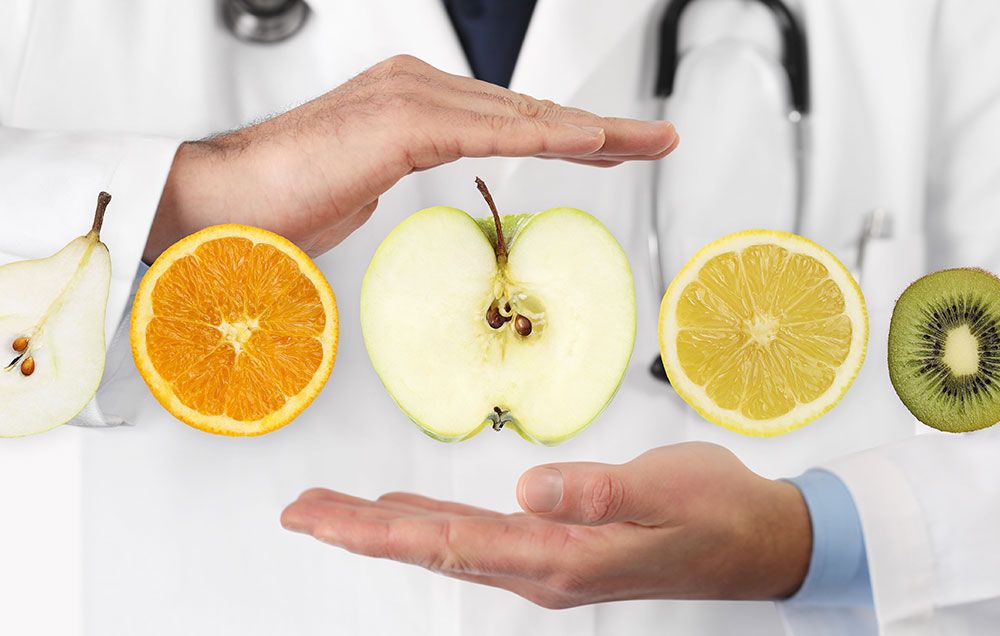All Categories
Featured
Table of Contents
-1
It's something like the distinction in between your good friend who owns a collection of clippers and an accredited barber."Any person can call themselves a nutritionist.
-1"Being a dietitian indicates you've completed the demands set by the Academy of Nourishment and Dietetics to provide nutrition therapy and medical nourishment treatment."You'll discover dietitians in a range of job setups, consisting of: Medical facilities and medical professionals' workplaces. Retirement home. Neighborhood wellness and wellness companies (like health clubs and recreation centers). Foodservice companies. Food and beverage companies.

-1
In addition to making RD and LD qualifications, some registered dietitians might complete customized training to be able to far better guidance individuals with particular nutrition objectives or health and wellness conditions. Each of those accreditations may feature added letters after their name, as well. Some dietitians may gain accreditations in specialties like: Sports dietetics (CSSD). Gerontological nourishment (CSG). Pediatric nourishment (CSP). Excessive weight and weight management (CSOWM). Diabetic issues treatment and education and learning (CDCES). Some qualification programs may be open to people that aren't registered dietitians.
-1Where you seek help issues. Specifically if you're living with a condition that influences your eating routines."If you want to be certain you're obtaining the very best evidence-based recommendations from a specialist in the area, a dietitian is constantly going to be your best option," Sommer encourages. That's not to say some individuals that have not completed the specialized training it needs to be a dietitian don't have anything to use.
Functional Nutritionist – Quinns Rocks
-1"Your health and wellness is essential, so you do not wish to put it in the hands of simply any individual.".
-1The solution exists is a distinction. As an Accredited Practising Dietitian and Accredited Nutritional expert, I believe it is extremely important to find a practitioner finest suited to your private requirements; and it is necessary to make an educated option. In Australia there is no legal protection over the terms 'dietitian' and 'nutritional expert.' This means that any person (with a variety of education and training) can refer to themselves as a dietitian or a nutritionist.
-1In comparison, the term nutritionist is not as regulated as APD. Nourishment Society of Australia has actually created a Register of Nutritionists yet subscription is totally volunteer. This suggests it depends on the practitioner if they wish to come to be a member or otherwise. While numerous nutritional experts go through university training, it is not for dietitians.
-1Nutritionists are not informed in clinical nutrition treatment and can not suggest diet regimens in disease states. This consists of both in individual or team dietary treatments. Nutritional experts are only able to provide suggestions for general health and wellness problems such as weight administration, nutrition throughout the life cycle, or nourishment in various nutritional choices (such as veganism and vegetarianism).
Diabetes Dietitian – Quinns Rocks 6030
-1It is very important to point out that, due to enhanced education and learning, all APDs are immediately Accredited Nutritionists and have the ability to offer every one of the services a nutritionist can provide. The purpose of both nutritionists and dietitians is to help people accomplish optimal wellness and wellbeing with boosting nourishment. The primary distinction in between a dietitian (only those with the APD title) and a nutritionist is that APDs have actually gone on to refresher course and are certified to provide medical nourishment therapy to individuals and to groups.
-1APDs efficiency is likewise consistently kept track of and they are called for to finish consistent education. APDs are bound by a Code of Ethics, and those that do not conform (as well as those who do not complete the called for continuous specialist development) lose their APD title. APDs are likewise registered with Medicare, DVA and the majority of wellness funds; whereas, nutritional experts are not.

-1
Both are medical care professionals, the titles 'Dietitian' and 'Nutritional expert' are usually incorrectly swapped - be mindful nutrition dietitian. The title of a Registered Dietitian (RD) is safeguarded by law, and practitioners need to be registered with the Health and wellness & Care Professions Council (HCPC).
Dietitian For Children
-1YouTube Widget Placeholder The title of Registered Nutritional expert is given to registrants with the UK Voluntary Register of Nutritionists (UKVRN). Registered Nutritionists are qualified to supply dietary details and guidance as professionals in dietary science, to both people and areas. By completing a sophisticated degree such as a master's in nourishment and/or doctorate program, Registered Nutritionists can remain to come to be scientists and teachers in the area of nutrition.

-1
The major difference between dietitians and nutritional experts lies in the lawful limitations that each title carries. (RD) or registered dietitian nutritionists (RDN), can deal with professional medical concerns.
-1Often, insurance service providers will cover expenses connected with a dietitian's solutions. While they typically function in colleges, gyms, wellness food stores, and various other less medically-oriented settings, they can additionally function in several of the exact same places as their RD colleagues.
-1Some states call for nutritional experts to hold a work license, but others don't manage the function at all. If you're exploring which course is appropriate for you, right here's what you need to understand regarding the differences in becoming a nutritionist versus a dietitian.
Latest Posts
Plant-based Dairy- Health Or Hype? ( Melville)
How To Know If You Or Someone You Care About Has An ... – Carey Park
Health & Wellbeing - Perth – Canning 6107